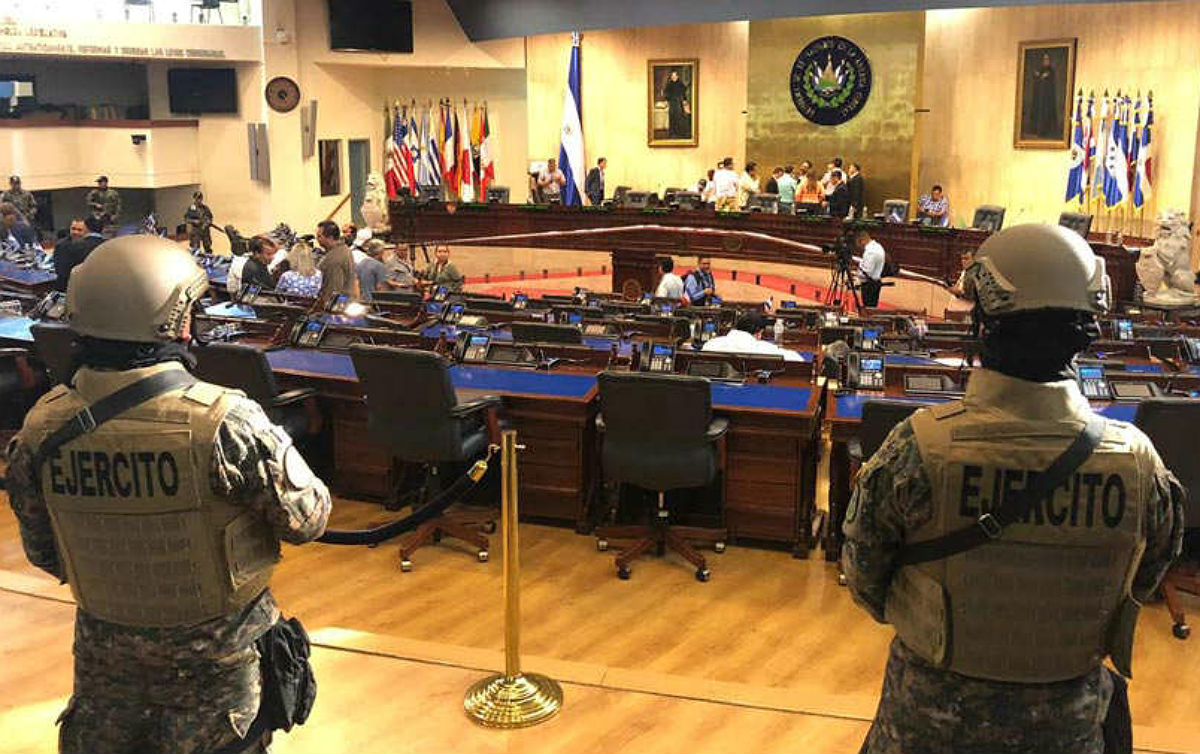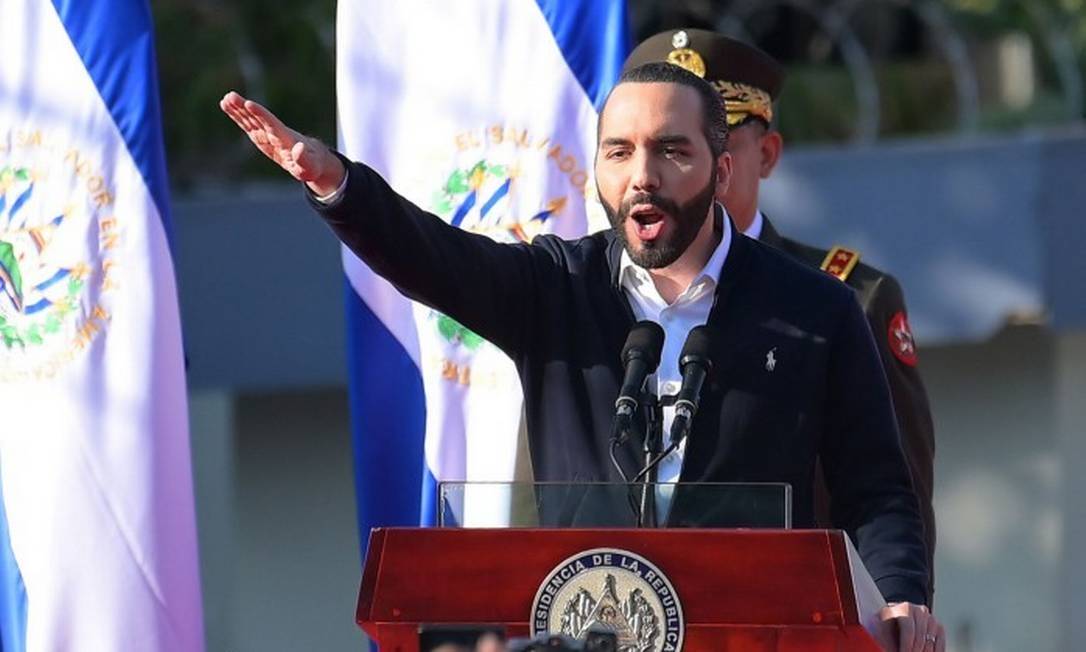RIO DE JANEIRO, BRAZIL – By an order of President Nayib Bukele, dozens of soldiers occupied the Parliament building in the capital of El Salvador last Sunday. The reason is a dispute over the approval of US$109 million (R$436 million) to finance the country’s security policy. The 2020 budget includes a substantial increase in spending on internal security.

However, the deputies have so far refused to grant the president additional funds for the purchase of protective vests, drones, and helicopters. Bukele does not have a majority in Parliament.
Concern now arises over the means by which the President is seeking to impose his wishes. On Twitter, he announced on Saturday that he would hold an extraordinary parliamentary session on Sunday at 3 PM, invoking Constitutional Article 167. The intention behind the use of this paragraph is to deal with particularly pressing emergencies.
However, the wording of the Constitution, “when the interests of the Republic so require”, leaves room for interpretation. However, Bukele went even further and, invoking Article 87, called on the population to rebel should the deputies not comply with his orders.
These instructions were also directed to administrative and ministerial staff, who find it difficult to oppose them solely for fear of being dismissed. On Sunday night, police patrols made threatening visits to members of opposition parties.
The call for an “uprising” was followed by about 5,000 people on Sunday. In the parliament building, deputies were not prepared to comply with Bukele’s demands, despite the military threats.

In his speech, he warned that those who were not prepared “to work for the people” would be required to leave parliament in a few months’ time in any event (new elections for the Chamber will be held in early 2021). He then granted deputies one week to approve his plans in an extraordinary session on Sunday. “I have asked God and he has advised me to be patient.”
These political maneuvers, which, according to many comments, are reminiscent of long-forgotten times of dictatorship and military rule, are met with national and international resistance. The Central American University UCA, for one, has criticized Bukele’s authoritarian behavior. Saul Baños of the human rights center FESPAD stressed that the state’s decisions could not be influenced by the president’s whims.
Organizations such as the Alliance Against Water Privatization, the Round Table for Food Sovereignty, El Salvador’s Coordination of Popular Movements, and others denounce the president’s actions as an assassination attempt on democracy.
The left-wing party National Liberation Front Farabundo Martí (FMLN) strongly criticizes Bukele’s offensive action and expresses solidarity with its deputies. In a press release, the party addresses the president directly with the message: “We will not be pressured or intimidated. The party calls on its own base to be vigilant and protect the interests of the people”.
The European Union, Human Rights Watch and Amnesty International (Federal Republic of Germany section) have voiced concern in press releases.

